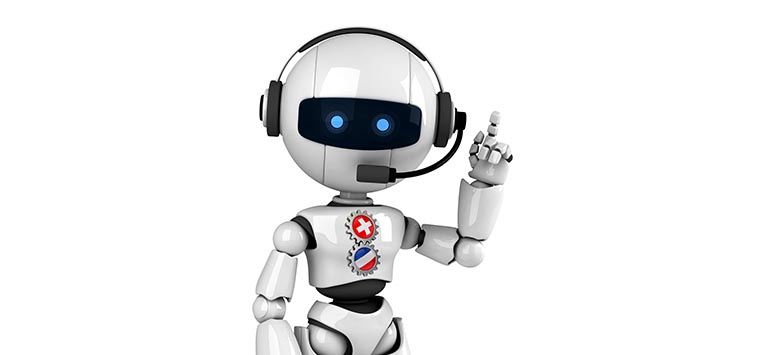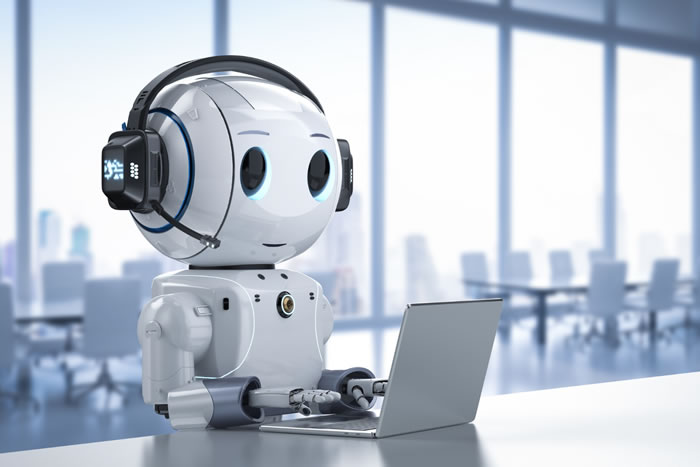Yes, chatbots can be very useful in many situations. They can provide a number of benefits, including:
1. Improved customer service: Chatbots can provide 24/7 support to customers, answering frequently asked questions and resolving common issues. This can help reduce wait times and improve customer satisfaction.
2. Cost savings: Chatbots can reduce the need for human customer service representatives, resulting in cost savings for businesses.
3. Increased efficiency: Chatbots can handle multiple customer interactions simultaneously, increasing efficiency and reducing response times.
4. Personalization: Chatbots can be customized to provide personalized recommendations and assistance to users, improving the user experience.
5. Availability: Chatbots can be accessed from anywhere, making them a convenient option for users who need assistance outside of business hours or who are located in different time zones.
6. Scalability: Chatbots can handle a large volume of interactions simultaneously, making them a scalable solution for businesses that need to support a large customer base.
Overall, chatbots can be very useful in a variety of scenarios, and their benefits can lead to improved customer satisfaction, cost savings, and increased efficiency for businesses. However, the effectiveness of a chatbot will depend on the specific use case and the quality of its design and implementation.
Sunday, April 23, 2023
Are Chatbots Sentient?
No, chatbots are not sentient. While chatbots are designed to simulate human conversation and can respond to user input in natural language, they do not possess consciousness or subjective experience.
Chatbots are programmed using a combination of natural language processing (NLP) and machine learning techniques that enable them to understand user input and generate responses based on pre-defined rules or patterns learned from training data. Chatbots are not capable of independent thought or decision-making, and their responses are limited to the pre-defined rules and patterns they have been programmed with.
Sentience, on the other hand, refers to the capacity for consciousness or subjective experience. While humans and some animals are considered sentient beings, machines like chatbots are not.
In summary, chatbots are not sentient beings. They are programmed to simulate human conversation, but their responses are based on pre-defined rules and patterns, and they do not possess consciousness or subjective experience.
Chatbots are programmed using a combination of natural language processing (NLP) and machine learning techniques that enable them to understand user input and generate responses based on pre-defined rules or patterns learned from training data. Chatbots are not capable of independent thought or decision-making, and their responses are limited to the pre-defined rules and patterns they have been programmed with.
Sentience, on the other hand, refers to the capacity for consciousness or subjective experience. While humans and some animals are considered sentient beings, machines like chatbots are not.
In summary, chatbots are not sentient beings. They are programmed to simulate human conversation, but their responses are based on pre-defined rules and patterns, and they do not possess consciousness or subjective experience.
Are Chatbots Safe?
Chatbots can be safe if they are designed and implemented with appropriate security measures in place. However, like any technology, chatbots can also pose security risks if they are not designed and implemented properly.
Some potential security risks associated with chatbots include:
1. Data breaches: Chatbots may collect personal information from users, such as names, addresses, and payment information. If this information is not stored securely, it could be vulnerable to hacking and data breaches.
2. Malware and phishing attacks: Hackers can use chatbots to distribute malware and phishing attacks to users, potentially compromising their devices and stealing their personal information.
3. False information: Chatbots that provide inaccurate or false information could mislead users and potentially harm them or their business.
4. Misuse of user data: Chatbots could be used to collect and misuse user data for nefarious purposes, such as identity theft or fraud.
To mitigate these risks, chatbot designers and implementers should follow best practices for data security and privacy, including:
1. Encrypting sensitive data and using secure storage systems to protect user information.
2. Implementing strong authentication and access controls to prevent unauthorized access to chatbot systems.
3. Regularly testing chatbots for vulnerabilities and addressing any security issues promptly.
4. Ensuring that chatbots are transparent about the data they collect and how it is used, and obtaining user consent before collecting personal information.
In summary, chatbots can be safe if appropriate security measures are in place. Chatbot designers and implementers should follow best practices for data security and privacy to minimize the risk of security breaches and protect user information.
Some potential security risks associated with chatbots include:
1. Data breaches: Chatbots may collect personal information from users, such as names, addresses, and payment information. If this information is not stored securely, it could be vulnerable to hacking and data breaches.
2. Malware and phishing attacks: Hackers can use chatbots to distribute malware and phishing attacks to users, potentially compromising their devices and stealing their personal information.
3. False information: Chatbots that provide inaccurate or false information could mislead users and potentially harm them or their business.
4. Misuse of user data: Chatbots could be used to collect and misuse user data for nefarious purposes, such as identity theft or fraud.
To mitigate these risks, chatbot designers and implementers should follow best practices for data security and privacy, including:
1. Encrypting sensitive data and using secure storage systems to protect user information.
2. Implementing strong authentication and access controls to prevent unauthorized access to chatbot systems.
3. Regularly testing chatbots for vulnerabilities and addressing any security issues promptly.
4. Ensuring that chatbots are transparent about the data they collect and how it is used, and obtaining user consent before collecting personal information.
In summary, chatbots can be safe if appropriate security measures are in place. Chatbot designers and implementers should follow best practices for data security and privacy to minimize the risk of security breaches and protect user information.
Subscribe to:
Posts (Atom)



